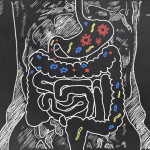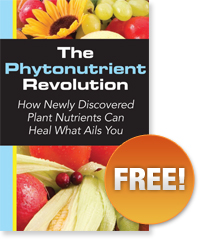By David Blyweiss, M.D., Advanced Natural Wellness
Do you ever wonder why some people age so much faster than others? Their genetic makeup is one factor, but the toxins they’re exposed to play an even bigger role.
We’re bombarded by harmful chemicals and environmental pollutants every single day.
Food and water can contain traces of flame retardants, heavy metals, herbicides, pesticides, and plasticizers. We’re exposed to more than 80,000 chemicals that didn’t exist 100 years ago. And these chemicals are in the air we breathe, the water we drink, the food we eat, and the products we use.
The problem is, while the environment has changed by becoming more toxic, our bodies haven’t learned how to protect against these contaminants.
Even if you watch what you eat, abstain from alcohol and drugs, exercise regularly, and avoid obvious contaminants, your body can still contain more than 100 different pollutants.
And these poisons don’t just affect the aging of your body. Some of these poisons can wreak havoc with your hormones and your immune system.1 Others can damage your cells and contribute to a variety of cancers.2 Still others can interfere with the way your brain works.3
But that’s not all. Exposure to these environmental toxins could be making you fat!
Here’s how it works: the more fat you have, the more toxins you retain. The more toxins your body retains, the harder it is to shed pounds. Certain chemicals like Bisphenol A, PCBs, parabens, and phthalates have a direct impact on the hormones that control appetite and fat storage.4
So, what can you do? Here are my two suggestions:
Are You Suffering From...
- Love handles and a pot belly
- Romance that isn't what it used to
- Forgetfulness and inattention
- Low (or no) strength and endurance
- A sex drive that's shifted into neutral...or worse
If so...you may have Mature Male Burnout. Click here to discover more about this unique condition and what you can do about it.
- Minimize your exposure to these toxins and…
- Rid your body of accumulated poisons with a springtime detox.
My favorite way to unload these pollutants is with a 3-day juice fast. If you are generally healthy, this type of fast will flush toxins out of your system with amazing speed and allow your body to rest and repair itself.
Now, if you’ve never fasted, it’s important to have a plan of action before you begin. Here are some great tips to get you started:
- Reduce the amount of animal protein you eat during the week leading up to your fast.
- Avoid caffeine, alcohol and nicotine.
- Drink at least 8 to 10 glasses of purified water each day.
- Invest in a juicer.
- Take a probiotic supplement to make sure you’re getting plenty of beneficial bacteria.
- After your fast, transition back to solid food slowly.
To get the maximum benefits from your fast, choose only freshly squeezed juice from organic fruits and vegetables. Apple juice spiked with a bit of lemon or plain carrot juice are the basics of any juice fast, but beets, parsley, spinach, cucumber, zucchini, celery and cabbage are all nutrient-rich choices. For variety, try different combinations of several fruits or vegetables.
As your body starts to get rid of toxins, you might experience headaches, fatigue, and irritability.
You may also experience gas and loose stools. This isn’t a signal that you shouldn’t fast, it just tells you your body is eliminating built-up poisons.
Once you’ve finished your fast, spend Day 4 eating low-starch (low-glycemic) vegetables, including a little ginger or sauerkraut to help stimulate digestive function. I also like to include grapes, cherries or stewed prunes because they keep the bowels moving.
Doing a 3-day fast every few months can help keep toxin levels under control.5 Not only will this help promote better overall health, you’ll feel cleaner, better, and more alive.
References:
- Hogaboam J. The aryl hydrocarbon receptor affects distinct tissue compartments during ontogeny of the immune system. Toxicological Sciences. 2008;102:160-170.
- Dewailly E. High organochlorine body burden in women with estrogen receptor-positive breast cancer. Journal of the National Cancer Institute. 1994;86: 232-234.
- Crinnion WJ. Environmental medicine, part one: the human burden of environmental toxins and their common health effects. Alternative Medicine Review. 2000;5:52-63.
- Sogawa H. Influence of short-term repeated fasting on the longevity of female (NZB x NZW) F1 mice.” Mechanisms of Ageing and Development. 2000;115:61-71.
- Dirinck E. Obesity and Persistent Organic Pollutants: Possible Obesogenic Effect of Organochlorine Pesticides and Polychlorinated Biphenyls. Obesity. 2010 Jun 17. [Epub ahead of print]







